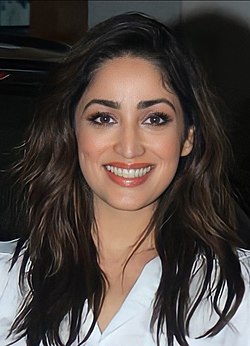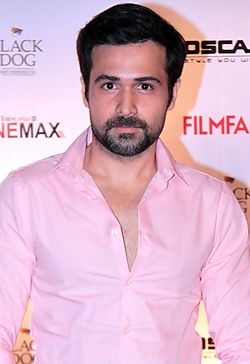HAQ


In 1980s India, Shazia Bano fights for justice when her husband cuts off child support after remarrying. His use of triple talaq to silence her ignites a nationwide discussion on women's rights and religious beliefs, highlighting the struggles of women in a changing society.
November 7
2025
Release Date
Hindi
Language
14 minutes
2 hours
Running Time
Cast


Yami Gautam


Emraan Hashmi


Sheeba Chaddha


Rahul Mittra


Vartika Singh





Aseem Hattangady





Danish Husain





Nitin Mahesh Joshi





Kapil Tilhari
4.0
Average Rating
The above-mentioned average rating is based on the derived ratings of multiple review platforms
OH Review


Review of 'Haq'
Plot
'Haq' plunges viewers into a poignant narrative, rooted in a fascinating yet painful historical context—the infamous Shah Bano case. Directed by Suparn Verma, the movie chronicles the life of Shazia Bano, played by the incredibly talented Yami Gautam, who is shown battling not only personal betrayals but also the very fabric of societal injustice. The film artfully unfolds in a small town in Uttar Pradesh in 1967, where Shazia initially enjoys a seemingly perfect marriage with her husband Abbas Khan, portrayed by Emraan Hashmi. However, everything changes dramatically when Abbas returns from a trip to Pakistan with a second wife, plunging Shazia into a whirlwind of emotional turbulence.
The screenplay is well-crafted by Reshu Nath, fleshing out Shazia's journey through systemic neglect and personal trauma. It takes its time to showcase her reality, allowing the audience to connect deeply with her struggles, concerns, and resilience. After experiencing intense humiliation and betrayal, Shazia's world spirals out of control when Abbas leaves her with their children and minimal financial support, pushing her to seek justice through the legal system. This sets the stage for a gripping courtroom drama, highlighting the cultural complexities surrounding divorce, particularly within the framework of Muslim personal law and secular laws in India.
The plot doesn't merely revolve around legal battles; it dives deeper into the complex nature of relationships, societal expectations, and the struggle for rights. What makes 'Haq' particularly powerful is its ability to evoke a spectrum of emotions without resorting to sensationalism or over-dramatization. The film seamlessly interweaves Shazia's personal trauma with larger social issues such as gender inequality and the complexities involved with cultural practices. The tale becomes a universal cry for dignity and respect, moving beyond the specificities of one woman's battle to illustrate a broader fight for justice that resonates with many.
As Shazia endeavors to reclaim her rights, the film brilliantly highlights the flawed interpretations of religious laws and societal norms that often serve to silence women. This delicate balance of maintaining a personal narrative while engaging with political undertones is what keeps the audience invested. The potent combination of emotional depth and strong thematic relevance gives 'Haq' its much-needed gravitas, making it a thought-provoking experience rather than a mere documentary on legalities. It leaves viewers questioning the status quo, pondering over the very structure of rights and responsibilities within relationships, especially in a patriarchal society.
Acting
The performances in 'Haq' are nothing short of extraordinary. Yami Gautam, in the role of Shazia Bano, delivers a deeply nuanced and moving portrayal of a woman grappling with the fractures in her personal and social life. Her ability to embody Shazia's journey—from a confident wife to a battle-hardened fighter for her dignity—is simply mesmerizing. Yami's performance is marked by emotional restraint, allowing the audience to witness the turmoil beneath her composed exterior. It's in her subtle expressions and quiet strength that we see a woman determined to reclaim her identity. The way she captures Shazia's struggle with vulnerability—balancing moments of grief, anger, and defiance—is a masterclass in acting.
Emraan Hashmi, generally known for his charismatic roles, surprises viewers with a deeply layered performance as Abbas Khan. He plays a flawed character whose entitlement and manipulation are portrayed with such authenticity that it feels frighteningly real. There's no over-the-top villainy here; Abbas is depicted as a man trapped in his social privilege, blinded by it, which engenders a complex character that is both relatable and revolting. The chemistry between Yami and Emraan adds tension to their confrontations, particularly during the courtroom exchanges, where their performances reach an emotional crescendo.
The supporting cast also deserves commendation, particularly Sheeba Chaddha as Shazia's determined lawyer, Bela Jain, who navigates the murky waters of legal complexities alongside her reluctant associate, Faraz (Aseem Hattangady). Their portrayal of conviction against resistance adds a significant layer to the film's narrative, showcasing the hurdles faced by women seeking justice in a prejudiced society. Vartika Singh, in her role as Saira, the second wife, also brings depth to the story, representing the complexities and struggles faced by women across various backgrounds.
Each actor contributes to the film's rich tapestry of emotions, making 'Haq' not just a story of one woman's battle for dignity but a collective remark on societal norms and the human experience. The film excels in the way it positions its characters—none of them entirely good or evil—adding an element of moral ambiguity that propels the narrative forward. The performances are integral in transforming a relevant but sensitive subject matter into an engaging cinematic experience that generates both a dialogue and reflection among the audience.
Cinematography
The cinematography in 'Haq' is both conceptually significant and aesthetically pleasing, adding layers of meaning to the film's emotional gravity. Directed by Suparn Verma, the visual storytelling complements the narrative’s intimate focus on Shazia Bano's struggle. The choice of locations, primarily set in the quaint surroundings of Uttar Pradesh during the late '60s and early '70s, authentically reflects the social fabric and cultural nuances of the time period.
The camera work captures the contrast between Shazia’s domestic life and the escalating turmoil she experiences. The decision to use close-ups effectively portrays the emotional weight carried by the characters, allowing viewers to connect in profound ways with their internal conflicts. Each frame seems meticulously crafted, with lighting and composition working together to evoke the film's tone of despair laced with a flicker of hope. The cinematographer beautifully balances between wide shots that depict the harshness of society's judgment and intimate close-ups that reveal the nuanced expressions of pain and resilience on Shazia's face.
Furthermore, the film does an exceptional job of juxtaposing reality with dream-like sequences, particularly those highlighting Shazia's memories of happiness with Abbas before their relationship dramatically deteriorated. This visual storytelling technique enhances the emotional impact, allowing the audience to fully grasp what Shazia has lost and what she is fighting to regain. Such moments of reflection are captured thoughtfully, layered with poignance and nostalgia.
The cinematography also excels in depicting the courtroom scenes, where the tension is palpable. Clever camera angles enhance the drama of the legal battles, giving viewers a sense of the stakes involved for Shazia. The framing adheres to the closeness of her emotional spectrum juxtaposed against the sterile environment of legal proceedings, symbolizing her fight against an unforgiving system.
Overall, the cinematography in 'Haq' serves as more than just a backdrop; it elevates the film, anchoring the audience's attention and guiding them through the emotional landscape of Shazia’s journey. It plays a crucial role in encapsulating the themes of the story, immersing the viewers in a world where personal tribulations resonate against a backdrop of cultural and societal expectations. The visual artistry is an essential part of what makes 'Haq' such a compelling and engaging film.
Direction
Suparn Verma’s direction in 'Haq' is nothing short of remarkable, brilliantly navigating the complex emotional and thematic landscapes presented in the film. His mature approach to storytelling creates a balanced narrative that refrains from sensationalizing very real and sensitive issues. Instead, Verma provides a platform for nuanced discussion surrounding women's rights, societal norms, and religious dynamics without veering into melodrama.
One of the film's most commendable aspects is the way Verma allows the characters and the story to breathe. He carefully constructs scenes that reflect the protagonists’ internal struggles while simultaneously unraveling broader societal commentary. Instead of overtly positioning the material as a mere advocacy piece, he crafts it as a deeply human experience. The film takes its time to build characters, particularly Shazia, creating space for audiences to understand her pain, her resilience, and ultimately, her quest for justice.
Verma’s ability to maintain a delicate balance between the personal and political spheres is a strongpoint in his direction. By depicting the intricacies of Shazia’s life and the societal structures that constrain her, he avoids falling into the trap of a preachy narrative. His framework empowers both sides of the argument—showing that misunderstandings of faith can distort the law and vice versa—making 'Haq' a compelling exploration of the sensitive issues of gender and justice.
The film’s pacing deserves particular mention. Verma's direction engages the audience with its steady yet impactful rhythm, allowing emotional moments to resonate without feeling dragged out or rushed. His command over the narrative flow keeps viewers emotionally invested from beginning to end, expertly building up to the film’s climax: the courtroom confrontation between Shazia and Abbas. This scene is a highlight of the film, steeped in raw vulnerability and emotional intensity, representing the culmination of Shazia's fight and Verma’s successful buildup of tension throughout the previous scenes.
Moreover, the storytelling showcases Verma's adept use of dialogue, creating lines that echo throughout the viewer's mind long after the film concludes. He steers clear of clichés, opting instead for raw, honest conversations that further the narrative while offering insight into the characters and their motivations. The themes are poignantly woven into the dialogue, allowing the audience to ponder the larger social issues as they engage with the personal story.
In sum, Suparn Verma’s direction in 'Haq' is a crucial ingredient in the film's success. His thoughtful and deliberate approach elevates the material, allowing the movie to resonate with its audience emotionally and intellectually. It is refreshing to encounter a film that tackles such delicate subjects with a sense of grace and maturity, reinforcing the notion that cinema can be both impactful and sensitive to its topics.
Conclusion
In conclusion, 'Haq' stands out as a brave and poignant film that tackles significant social issues without resorting to melodrama or sensationalism. Under the deft direction of Suparn Verma, the story of Shazia Bano becomes not only a personal struggle but also a reflection of broader societal dilemmas surrounding gender equality, religious interpretation, and legal rights. The film’s strength lies in its ability to garner empathy and understanding while provoking thought and dialogue around the very issues it portrays.
Yami Gautam's and Emraan Hashmi's outstanding performances further solidify the film's emotional foundation, embodying complex characters in a narrative that links personal experiences with social commentary. The film’s cinematography and direction work in tandem to create a rich visual and emotional experience, allowing audiences to not just witness but feel the urgency and weight of the story.
While some aspects, such as the heavy use of Urdu, may challenge certain viewers, the authenticity and richness of the language also serve to enhance the narrative. 'Haq' encourages viewers to critically evaluate the injustices faced by women in society, urging discussions about gender justice and equality without demonizing any one belief or side.
Ultimately, 'Haq' is a significant cinematic endeavor that is timely and essential in today's climate. It encourages audiences to reflect on their own beliefs and the ways in which societal structures shape our understanding of rights and justice. By the end of the film, viewers are left with a lasting message that echoes beyond the screen: the right to dignity, respect, and justice is every individual's haq. As a film, it succeeds in provoking thought, fostering dialogue, and ultimately instilling a sense of hope for a more equitable future.
Share this review
The Great Reviews
India Today
Sana Farzeen
Times of India
Rediff
NDTV
Times Now
Tanmayi Savadi
India TV
More like this
Mardaani 3
In Mardaani 3, in a gripping race against time, brave officer Shivani Shivaji Roy returns to save girls who have mysteriously vanished. With danger lurking a...
Azad Bharath
In Azad Bharath, neera Arya becomes a courageous freedom fighter in India's first women's army, founded by Subhas Chandra Bose. As she battles for independen...
Raat Akeli Hai: The Bansal Murders
In Raat Akeli Hai: The Bansal Murders, after the Bansal family is brutally murdered, Inspector Jatil Yadav investigates the case. He uncovers a tangled web o...


